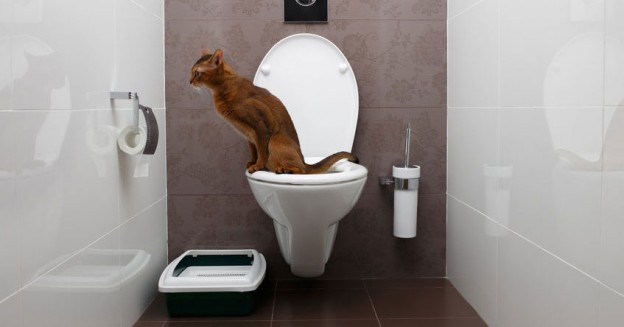The article author is making a few good points regarding Can You Flush Cat Poop Down The Toilet? as a whole in this content in the next paragraphs.

Introduction
As pet cat proprietors, it's important to be mindful of how we dispose of our feline buddies' waste. While it may appear convenient to flush pet cat poop down the commode, this method can have destructive repercussions for both the setting and human wellness.
Ecological Impact
Flushing pet cat poop presents harmful virus and parasites into the water supply, posturing a significant danger to water ecological communities. These impurities can adversely influence aquatic life and concession water top quality.
Health Risks
In addition to environmental problems, flushing cat waste can likewise posture health risks to human beings. Pet cat feces might consist of Toxoplasma gondii, a bloodsucker that can create toxoplasmosis-- a possibly severe illness, specifically for pregnant women and individuals with damaged immune systems.
Alternatives to Flushing
The good news is, there are safer and more accountable methods to deal with feline poop. Think about the complying with options:
1. Scoop and Dispose in Trash
The most common method of taking care of pet cat poop is to scoop it right into a naturally degradable bag and throw it in the garbage. Make sure to use a dedicated clutter inside story and throw away the waste quickly.
2. Usage Biodegradable Litter
Go with eco-friendly feline trash made from materials such as corn or wheat. These clutters are environmentally friendly and can be securely disposed of in the trash.
3. Hide in the Yard
If you have a lawn, consider hiding pet cat waste in an assigned location away from veggie yards and water resources. Make certain to dig deep enough to prevent contamination of groundwater.
4. Set Up a Pet Waste Disposal System
Purchase a pet waste disposal system specifically made for pet cat waste. These systems make use of enzymes to break down the waste, decreasing odor and ecological influence.
Conclusion
Responsible pet dog possession extends beyond supplying food and shelter-- it additionally includes correct waste management. By avoiding purging cat poop down the bathroom and going with alternative disposal techniques, we can decrease our ecological footprint and secure human wellness.
Why Can’t I Flush Cat Poop?
It Spreads a Parasite
Cats are frequently infected with a parasite called toxoplasma gondii. The parasite causes an infection called toxoplasmosis. It is usually harmless to cats. The parasite only uses cat poop as a host for its eggs. Otherwise, the cat’s immune system usually keeps the infection at low enough levels to maintain its own health. But it does not stop the develop of eggs. These eggs are tiny and surprisingly tough. They may survive for a year before they begin to grow. But that’s the problem.
Our wastewater system is not designed to deal with toxoplasmosis eggs. Instead, most eggs will flush from your toilet into sewers and wastewater management plants. After the sewage is treated for many other harmful things in it, it is typically released into local rivers, lakes, or oceans. Here, the toxoplasmosis eggs can find new hosts, including starfish, crabs, otters, and many other wildlife. For many, this is a significant risk to their health. Toxoplasmosis can also end up infecting water sources that are important for agriculture, which means our deer, pigs, and sheep can get infected too.
Is There Risk to Humans?
There can be a risk to human life from flushing cat poop down the toilet. If you do so, the parasites from your cat’s poop can end up in shellfish, game animals, or livestock. If this meat is then served raw or undercooked, the people who eat it can get sick.
In fact, according to the CDC, 40 million people in the United States are infected with toxoplasma gondii. They get it from exposure to infected seafood, or from some kind of cat poop contamination, like drinking from a stream that is contaminated or touching anything that has come into contact with cat poop. That includes just cleaning a cat litter box.
Most people who get infected with these parasites will not develop any symptoms. However, for pregnant women or for those with compromised immune systems, the parasite can cause severe health problems.
How to Handle Cat Poop
The best way to handle cat poop is actually to clean the box more often. The eggs that the parasite sheds will not become active until one to five days after the cat poops. That means that if you clean daily, you’re much less likely to come into direct contact with infectious eggs.
That said, always dispose of cat poop in the garbage and not down the toilet. Wash your hands before and after you clean the litter box, and bring the bag of poop right outside to your garbage bins.
https://trenchlesssolutionsusa.com/why-cant-i-flush-cat-poop/
We are very occupied with How to Dispose of Cat Poop and Litter Without Plastic Bags and I hope you appreciated my piece. Sharing is good. Helping people is fun. Thanks for your time invested reading it.
Source This Article